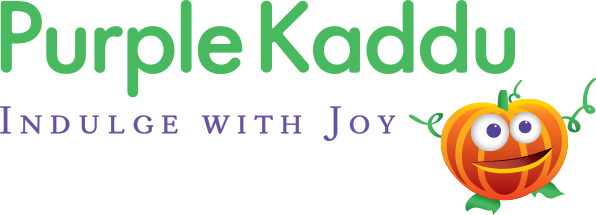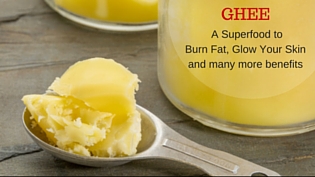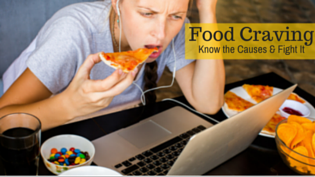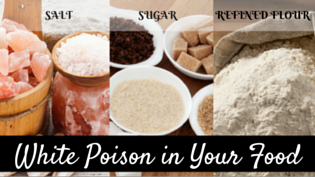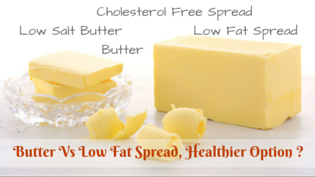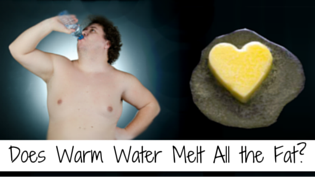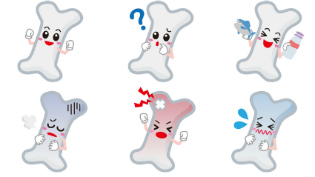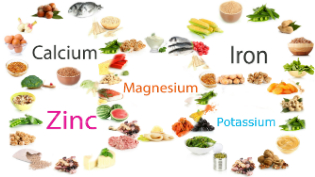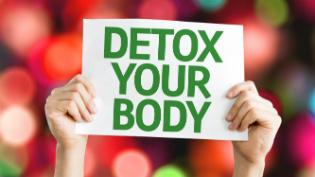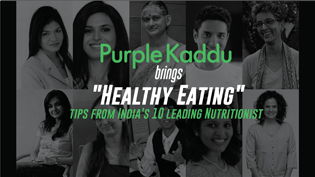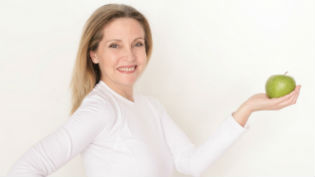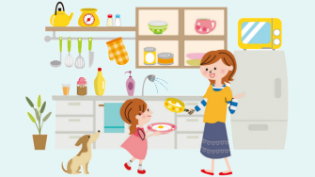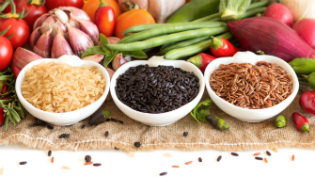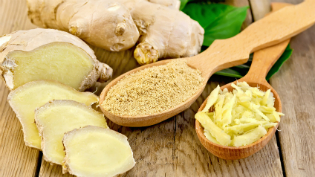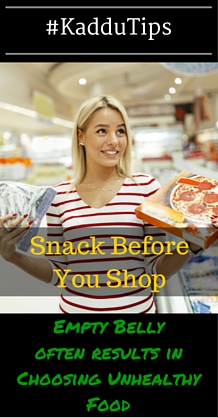
6 Biggest Food Misconceptions Exposed by India's Leading Nutrition Expert
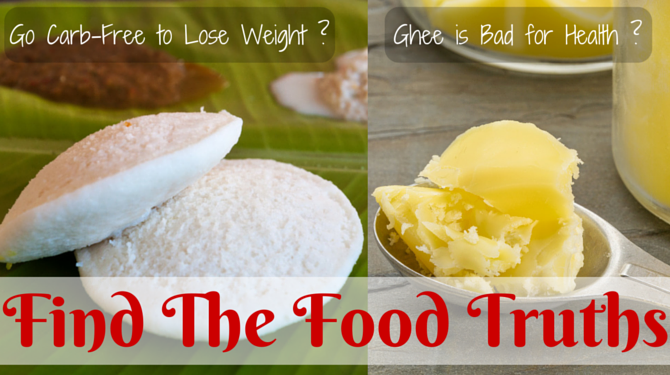
In today’s era with various modes of electronic communication and fast changing lifestyle, we are often faced with conflicting information floating around on healthy eating. One section of people say that a particular food is bad whereas another section swears by its health benefits. This can get extremely confusing as we do not know what to believe and follow. Let’s set the record straight on some of the popular healthy eating myths floating around.
1. I am on a weight loss diet. I should stock up on “Diet Foods”
Here comes the very popular fad of diet foods. We see an entire section dedicated to these diet foods on the shelves of supermarkets and we mindlessly head straight to that section picking up stuff for our guilt free snacking. Be aware of the fact that not all diet /health foods are genuine.
Those of us watching our waistlines choose brown breads over white breads thinking we are making a smart eating choice.
Beware! The truth is that the so called brown bread may not necessarily be made with whole wheat flour or whole grain. Some manufacturers add caramel colour to the dough to give the brown colour to bread. The soft texture of the brown bread is maintained by adding 3/4th refined flour (maida) to 1/4th wheat flour, So it is actually white bread in disguise which is even worse than the labelled white bread.
This holds true for the multigrain biscuits as well which may be low in sugar content but contain large amount of unhealthy fat, without which they cannot be made crispy and crunchy. These fats can increase the risk of diabetes, heart disease and sudden cardiac death.
Now coming to our very popular roasted/diet snacks .Roasted does not mean its calorie free. Usually diet snacks available commercially are also higher in their sodium content to make it more palatable. To make matters worse, most of us end up finishing almost the entire packet of diet snacks sitting in front of the television assuming it’s a healthier option.
There are two options available “low fat” or “fat free”. The low fat version is the one which is deep fried but the oil is drained out and the fat free is where they use refined edible oil to spray seasonings and enhance flavor. One quick exercise you could do is crush some in a blotting paper and see if it stains with oil. Go slow on these diet snacks which can jeopardize both your health and wealth as they are prized high.
Make sure you read the food labels to understand if they are really healthy or is it just another marketing gimmick
2. I use only “Cholesterol free oil”, hence I can be assured of good health
This is one of my favorites. My overweight clients always try to justify the excess oil consumption by telling me that they are using cholesterol free oil or the more expensive olive oil. We often hear people say “we use only olive oil” or “But I use only cholesterol free oil for frying, then why are my cholesterol levels high?” Most of us are slaves to our tongues and love tasty food. And if we have cooks, the matter just gets worse. They have no control on the oil consumption; their only goal is to serve you tasty food.
Remember all vegetarian foods are cholesterol free including the very controversial cashew nut and coconut. Cholesterol is only present in non veg foods like meat, fish, eggs, butter, milk and milk products. It is a great marketing gimmick of the manufacturers to boost sales. Remember quantity is important. One gram of any oil gives you 9 calories. Oils are calorie dense and hence we need to use them in portioned amounts.
Keep this in mind when choosing oils “heart-friendly oil should be cholesterol- and trans-fat free, low in saturated fats and high in monounsaturated fat (MUFA) and polyunsaturated fat (PUFA), it should have an ideal omega 6 to omega 3 acids ratio and a high smoking point”. Use a blend of different oils to enjoy maximum health benefits
3. Deep frying takes in more oil than shallow frying
Most of us in a bid to stay healthy avoid deep frying and resort to shallow frying cooking . You will be in for a surprise to know that shallow frying takes in more oil than deep frying.
In deep frying, the oil is hot (usually 300-375 degree F). This heat causes the water in the food to turn to steam, creating pressure, which keeps the oil from penetrating into the food
On the other hand, when you shallow fry the food, the top of the food is outside the oil and so is cooler than the part of the food which is in the oil. If the temperature drops below 212 degree F, you do not have the steam pressure keeping the oil out, therefore causing the food to soak up more oil.
In case of some foods, shallow frying may take in more oil than deep frying
For eg: Paratha takes in more oil than deep fried puris.
A health cooking tip here: You don’t need to invest in expensive equipment for oil free cooking. You can now enjoy your pakodas, vadas, appams and muffins without guilt by using appam makers for cheap oil free cooking.
4. I am a diabetic but I can eat sugar-free sweets in liberal amounts
We often hear people say “I am a diabetic, therefore, I only buy sugar free products”. I have come across many people who eat an entire bar of chocolate thinking it is sugar free. Beware! The sugar free market is booming, thanks to our ignorance. Do not fall prey to the sugar free scam assuming it won’t affect your weight and blood sugar levels. 'Sugar free' does not mean carb, calorie or fat free. When manufacturers remove sugar, they often add fat to the product making it higher in fat content than the product with sugar. Why eat the nasty sugar free cookies when you can have the good ones with less carbs in it. It is advisable to check the food label on the product for the total carbohydrate and fat content before consuming it.
5. Ghee is bad for health and must be avoided as much as possible
Ghee or clarified butter that once we saw our grandmothers churning with much love has earned a bad reputation over the years and is often considered a villain. Many people on a weight loss diet go off ghee completely in the pursuit of a quick and drastic weight loss.
You will be happy to know that Desi Ghee or clarified butter often blamed for obesity and heart diseases is not that bad after all. It is packed with myriad of health benefits
Ghee obtained from grass fed cow’s is a rich natural source of the potent nutrient conjugated linoleic acid (CLA). CLA has many health benefits such as combating cancer, asthma, improving insulin resistance, hypertension lowering and immunity boosting. Research has shown that CLA has been beneficial in lowering body fat and increasing lean body mass and thus improving metabolism. A study published in 2013 in the IJPPS journal showed that ghee lowers the bad cholesterol levels and enhances the good cholesterol levels thus offering heart protective benefits. It is also said to be good for the nerves and brain besides nourishing the eyes, hair and skin.
One word of advice here is that use homemade ghee and not the commercially available ghee. The commercially available ones are most likely hydrogenated vegetable fat with milk fat which may be detrimental to one’s health. Research published by the scientists from the National Dairy Research Institute (NDRI) have reported in the issue of the Indian Journal of Medical Research that Cow’s ghee could reduce tumors by 50%.This however does not mean you can go ahead with liberal amount of ghee in your diet. One must ensure that the intake of total fat (including ghee) should not exceed the prescribed limit of fat consumption. MODERATION IS KEY
6. It is advisable to go on a carbohydrate free diet to lose weight
Not true at all! Carbohydrates are to the body, what petrol is to the car. We, nutritionists advise patients to focus on having a good carbohydrate rich breakfast such as upma, poha, dosa , daliya, idli , puttu , paratha as soon as they wake up as it provides the necessary fuel to keep them energetic and alert throughout the day. When we deprive our body of carbohydrates, our brain is starved off energy and we experience symptoms such as lethargy, tiredness, lack of concentration and mood swings.
The quality and quantity of carbs is very important. The more you consume high simple sugar and low fiber content foods, the worse it is, as it offers very little nutritional value to your body. Choose good quality carbs such as vegetables, fruits, lentils, sprouts, cereals such as daliya (broken wheat), ragi, brown rice, jowar, bajra, oats, barley. Your nutritionist will tell you the amount of carbs that you need to consume to maintain good health.
